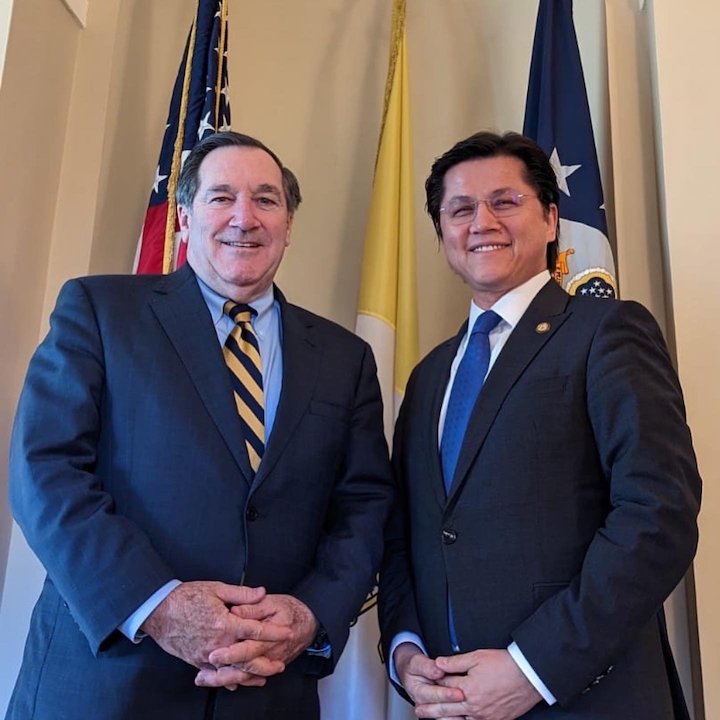The United States' chief advocate for religious freedom expressed his "disappointment" in the Vatican over its provisional agreement with China on the appointment of bishops in the country.
Nury A. Turkel, chair of the U.S. Commission on International Religious Freedom, met with Archbishop Paul Gallagher, Vatican foreign minister, at the Vatican Jan 12.
Speaking afterward to journalists at a meeting hosted by the U.S. Embassy to the Holy See, Turkel said the 45-minute meeting, lengthy by Vatican standards, focused primarily on religious persecution in China.
The Vatican and China signed an agreement in 2018 that recognized the pope as the leader of the Catholic Church and set out a process for cooperation between the Chinese government and the Vatican for the appointment of bishops. Its terms have never been made public, and in October 2022 it was renewed for a third two-year term.
Turkel said that China "has been using the agreement to justify its crackdown on underground churches" and to "punish Chinese priests."
He specifically cited the case of Bishop Joseph Zhang Weizhu of Xinxiang, who has been detained by Chinese authorities since May 2021 for refusing to join the government-recognized church.
China's Catholics "need a voice, and they are looking up to the Vatican to use its influence to help them," said Turkel, who was born in a re-education camp during China's Cultural Revolution and lived there with his mother until he was four months old.
The human rights lawyer said he also intended to discuss Christian persecution in Nigeria, Nicaragua, Egypt and Cuba with the Vatican, but the conversation stayed focused on China.
Turkel said that he raised the issue of the Chinese Communist Party's increasing hostility toward the "vibrant" Catholic community in Hong Kong advocating for democracy.
In particular, he told reporters that the arrests of Jimmy Lai, a Catholic entrepreneur who founded a pro-democracy newspaper in Hong Kong, and Cardinal Joseph Zen, bishop emeritus of Hong Kong, are examples of "how intolerant the (Chinese) regime is."
The Catholic community, he added, must "continue to shine a spotlight" on Cardinal Zen.
Turkel said that the treatment of pro-democracy Catholics in Hong Kong is "emblematic" of how agreements with the communist party are "useless," since China is not respecting Hong Kong's right to self-governance which was established when China assumed its sovereignty in 1997.
"They broke their promises on Hong Kong, and they continue breaking their promises," he said.
Beyond the situation of Christians in China, Turkel said he was "specifically told that the pope is aware" of the internment camps in Xinjiang where Uyghurs and other Muslims have been sent since 2017.
In July 2021, the U.S. State Department called the Chinese government's treatment of Uyghurs and other Muslim minorities in Xinjiang a genocide.
Turkel, who said the re-education camp where he was born was similar to the internment camps in Xinjiang, was awarded the inaugural Notre Dame Prize for Religious Liberty in 2021 for his advocacy work for Uyghurs.
He said winning the award "shows very clearly in the United States that the Catholic community wants the Catholic Church to take a position on this."
Turkel added that he was pleased with the Vatican's "willingness to look into how they could be helpful" in combatting religious oppression in China, which he said is necessary "to prevent the next genocide."

